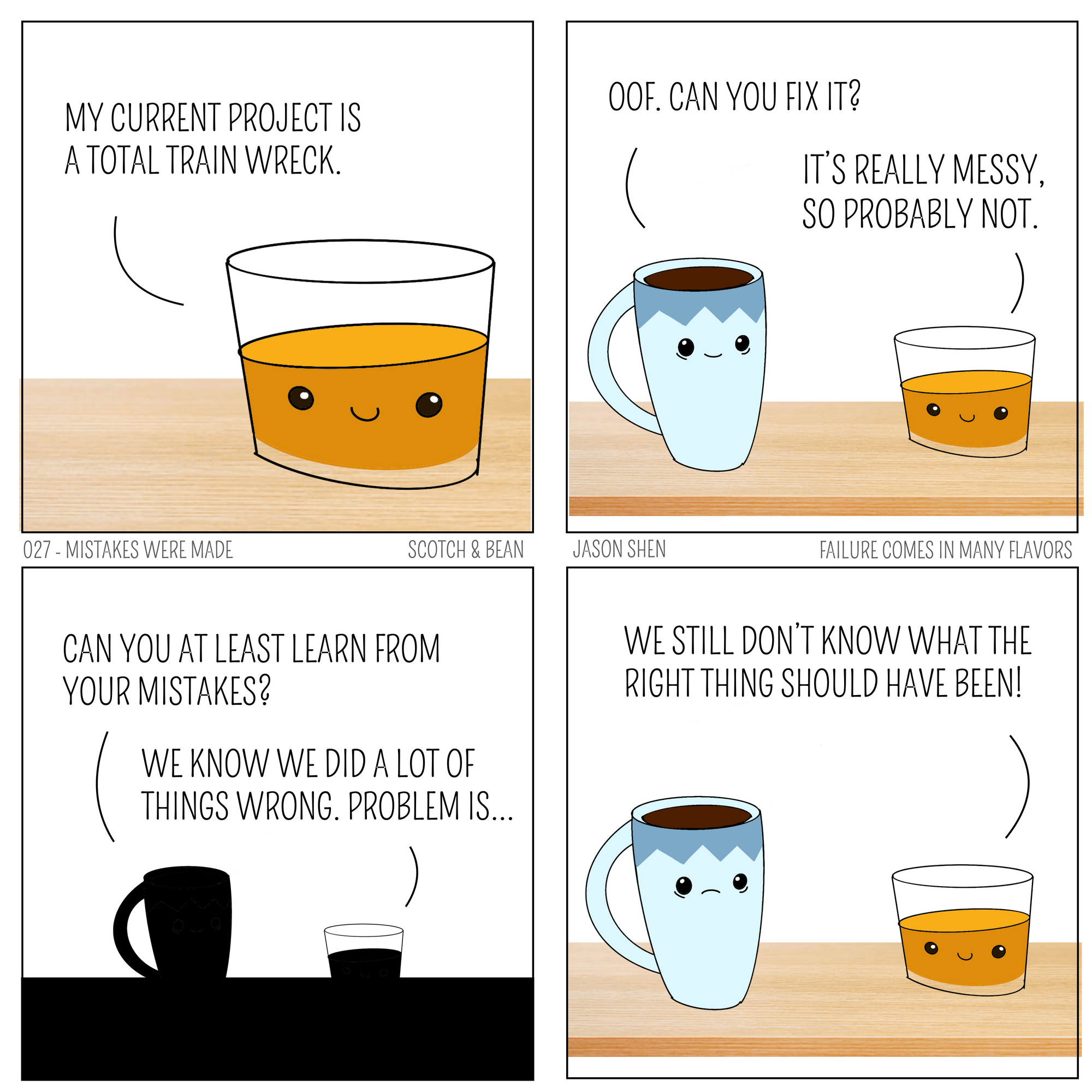This is the 72th edition of Cultivating Resilience, a weekly newsletter how we build, adapt, and lead in times of change—brought to you by Jason Shen, a 1st gen immigrant, retired gymnast, and 3x startup founder turned Facebook PM
They say there are only two seasons in Seattle: summer and rainy season. We are currently transitioning between those two. The last week has been damp and grey but somehow today, the first day of some kind of UW orientation, it’s gloriously sunny, warm, and inviting.
Stunned we are now in the last quarter of the year: time to get hustling on those 2021 goals! I’ve booked myself some Flow Club meetings to stay on track (see 066)
- Jason
🧠 “11 major causes for our disaster in Vietnam”

When Robert McNamara died in 2009, the New York Times described his life with this single clause: “the forceful and cerebral defense secretary who helped lead the nation into the maelstrom of Vietnam and spent the rest of his life wrestling with the war’s moral consequences”.
McNamara was considered the architect of the Vietnam War and in 1995 he published a memoir that detailed where he felt he had gone.
In the tail end of the book, he included 11 succinct lessons about his failures as part of the leadership team that led to the deaths of 56,000 American soldiers and over 3 million North and South Vietnamese civilians and soldiers.
Reading this list, it felt like a kind of post-mortem that could apply not just to the Vietnam War, but with a few minor revisions, the War on Terror, personal and work relationships, failed product launches, the tumble of once-great corporations.
1. We misjudged then -- as we have since -- the geopolitical intentions of our adversaries ... and we exaggerated the dangers to the United States of their actions.
2. We viewed the people and leaders of the target country in terms of our own experience. We saw in them a thirst for--and a determination to fight for -- freedom and democracy. We totally misjudged the political forces within the country.
4. Our misjudgments of friend and foe alike reflected our profound ignorance of the history, culture, and politics of the people in the area, and the personalities and habits of their leaders.
Lesson: when we don’t take the time to understand others, or assume they think just like us, we will make poor predictions about their future behavior. This will lead to confusion and chaos as our own actions will trigger unexpected results in them and we will not get what we want out of the situation.
When building an esports communications tool at Midgame, my cofounder and I assumed that players were interested in analyzing how their conversation contributed to their victory or defeat. When most teams just want to play again and get better through direct experience.
5. We failed then -- as we have since -- to recognize the limitations of modern, high-technology equipment, forces and doctrine in confronting unconventional, highly motivated people's movements. We failed as well to adapt our military forces to the task of winning the hearts and minds of people from a totally different culture.
Lesson: Often simple beats complex. Simple messages are more memorable complex ones. Simple systems are easier to fix than complex ones. Simple tactics are easier to execute than complex ones. If you are going up against a large and powerful opponent, keep your approach simple and nimble. That’s where you have the advantage.
Hillary Clinton cycled through numerous campaign slogans and concepts: I’m with her. Breaking down barriers. Fighting for us. Strong together. Meanwhile, the blunt but memorable and unwavering slogan of Trump’s Make America Great Again is still stuck in all of our heads.
6. We failed to draw Congress and the American people into a full and frank discussion and debate of the pros and cons of a large-scale U.S. military involvement ... before we initiated the action.
7. After the action got underway and unanticipated events forced us off our planned course, we failed to retain popular support in part because we did not explain fully what was happening and why we were doing what we did. We had not prepared the public to understand the complex events we faced and how to react constructively to the need for changes in course as the nation confronted uncharted seas and an alien environment. A nation's deepest strength lies not in military prowess but, rather, in the the unity of its people. We failed to maintain it.
Lesson: Great strategies can be derailed if your stakeholders aren’t bought in. If people don’t truly understand why they are doing something and feel ownership over the decision, they will be extremely frustrated when it doesn’t go well.
One of my product teams is going through a major rewrite of a complex piece of software. I have to continually remind / sell my leadership on why the rewrite was necessary and demonstrate the benefits of new system so they would not interfere with the process.
8. We did not recognize that neither our people nor our leaders are omniscient. Where our own security is not directly at stake, our judgment of what is in another people's or country's best interest should be put to the test of open discussion in international forums. We do not have the God-given right to shape every nation in our own image or as we choose.
9. We did not hold to the principle that U.S. military action -- other than in response to direct threats to our own security -- should be carried out only in conjuction with multinational forces supported fully (and not merely cosmetically) by the international community.
Lesson: This is about the mistakes of arrogance, pure and simple. Any organization with a lot of power invents stories justifying why it has that power and how it ought to use that power to right the wrongs of the world. And
10. We failed to recognize that in international affairs, as in other aspects of life, there may be problems for which there are no immediate solutions. For one whose life has been dedicated to the belief and practice of problem solving, this is particularly hard to admit. But, at times, we may have to live with an imperfect, untidy world.
11. Underlying many of these errors lay our failure to organize the top echelons of the executive branch to deal effectively with the extraordinarily complex range of political and military issues.
Lesson: This is probably the biggest lesson for McNamara, an analytical genius who brought rigor, logic, and quantitative thinking to his work at Ford Motor Company, where he was named President before becoming Defense Secretary. He would have fit right in as an exec at one of the tech giants. But life is messy and sometimes in trying to wrangle the mess, you only make it worse. And when you don’t have the right mindset and the right org structure to co-exist with that messiness, you can make some real stupid decisions.
🖼 Mistakes were made (Scotch & Bean)
Inspired by this week’s thought:

👉 Hypefury (Twitter Posting Client)
Last week I shared a new Twitter posting app I’ve been loving:
I think a lot of people struggle to thjjjnkd what to say on Twitter and Hypefury does a great job of surfacing examples of things you’ve said in the past that got good traction and encourages you to reshape them. Something you said 3 months ago can absolutely be posted again - no one is checking or will probably even remember. It has a pretty generous free tier too!
Hypefury - helping you tweet better
Like this edition of Cultivating Resilience? Help me reach more people who could use these ideas by sharing it!

